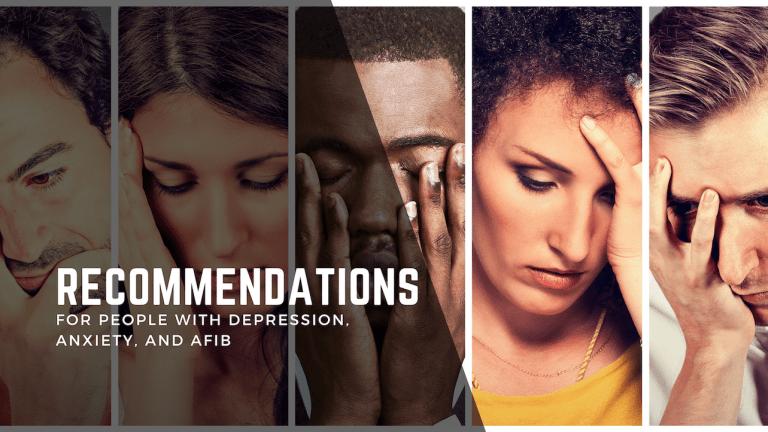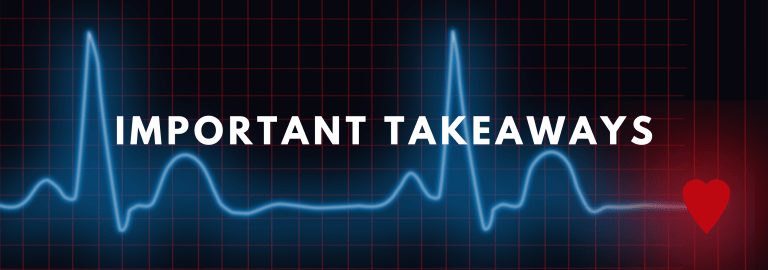- Texas Medical Center, 6560 Fannin St. #1680, Houston, TX 77030
- Heights Office, 427 W 20th St Houston, TX 77008
Is there a connection between Depression, Anxiety and AFib?

- posted: May 27, 2021

I’m going to tell you right off the bat: there is a serious connection between Depression, Anxiety and AFib.
If you have depression or anxiety and AFib, it is vital you ask your doctor about how to get mental and emotional health support alongside your AFib treatment. Not addressing your depression and anxiety may worsen your AFib symptoms and outlook, but addressing your depression and anxiety may improve your AFib treatment.
The relationship between depression and anxiety and AFib is a cyclical one; if you have AFib, you are more likely to have a depressed mood and anxiety than the general population. Furthermore, having depression and anxiety not only increases your risk of developing AFib, but it also amplifies your heart-related symptoms.
In this article, Dr. Alizera Nazeri summarizes the latest research on how depression, anxiety, and AFib are connected while providing recommendations for the next steps to take if you have a mental health condition and AFib.
5 examples on the connection between Depression, Anxiety and AFib
1: People with AFib are Likely to Have Depression and Anxiety
In a study carried out on 170 patients with AFib, researchers found that 34.9% of patients had high levels of anxiety and 20.2% of patients had high levels of depression. Levels of anxiety tend to be higher in women, older patients, in people with university-level education, increased number of years with Afib, people whose primary income is a pension (as opposed to a salary), and obesity.
2: Depression and Anxiety Increase Your Risk of Developing AFib
Studies have shown that having depression and anxiety increases your risk of developing AFib, independent of other factors. Furthermore, a Danish study found participants who took antidepressants had a three times higher risk of developing AFib.
Likewise, another study shows that anxiety disorders could trigger the development of AFib.
3: Depressed Mood Amplifies AFib Symptoms
People with AFib are more likely to experience anxiety and depression, and depression can worsen your symptoms of AFib.
Additionally, a study carried out with 316 AFib patients found that people who suffered from the physiological symptoms of depression, including; uneasiness, nausea, and shortness of breath, had worse symptoms of AFib, including;
- shortness of breath,
- nausea,
- palpitations,
- fainting,
- and a racing heartbeat.
However, when people who suffered from depressive symptoms experienced improvements, they also saw improvements in their AFib symptoms.
To clarify, research shows if a person is suffering from depression or anxiety, whether related to AFib or not, it is vital they talk with a doctor. So, they can build a strategy to help address their depression while also managing their AFib.
4: Depression is a Risk Factor for Death in People with AFib
In 2015 research on Swedish patients found the risk of death from all causes in people with atrial fibrillation was higher among men who suffered from depression. Additionally, a meta-analysis and systematic review of several studies found that depression is associated with an increased risk of sudden cardiac death.
5: Depression and Anxiety May Alter your AFib Course of Treatment
Upon receiving a diagnosis of depression or anxiety, you must tell your cardiologist treating your AFib.
Speak with your cardiologist for a referral to a specialist, if you have AFib and symptoms of depression or anxiety. Either way, depression, and anxiety may have implications for your treatment plan, as certain medications could increase your risk of cardiovascular events (heart attack or stroke).

- If you have an AFib diagnoses, tell your cardiologist or primary care physician immediately if you start having any symptoms of depression or anxiety.
• Common symptoms of depression include: a loss of interest in activities or hobbies, persistent feelings of sadness or emptiness, feeling hopeless or pessimistic, and thoughts of death or suicide.
• Common symptoms of anxiety include: persistent feelings of dread or panic, restlessness or irritability, difficulty controlling worry or fear. - Ensure you talk to your doctor about your AFib and depression or anxiety treatment plan if you have a depression or anxiety diagnoses. So, they can effectively manage your anxiety or depression while helping to manage your AFib.
- Moreover, be honest with your cardiologist about any medication you are taking. If you are feeling depression or anxiety, your treatment plan may change.
- Finally, ask for support! Depression and anxiety are serious, life-threatening conditions. It is normal and healthy to seek support from a psychological specialist or therapist. Talk to your cardiologist or primary care specialist if you would like support in getting a referral.

Main Takeaways
Remember, there is a real connection between depression, anxiety, and AFib.
- Having depression or anxiety increases your risk of developing AFib.
- Having depression or anxiety worsens your AFib symptoms.
- People with AFib are more likely to have depression or anxiety.
In conclusion, it is essential for anyone with Afib who is experiencing any symptoms of depression or anxiety to seek professional help, so they can receive an effective treatment plan that improves their quality of life.

About Dr. Nazeri
Dr. Nazeri offers a TeleHealth program. To easily set up a Vitrual Visit consultation to discuss any concerns you may have about developing Atrial Fibrillation (AFib.) Lastly, for information about cardiac arrhythmia monitoring and atrial fibrillation, please call on 713-909-3166 or visit our website at www.MobitzHeart.com
Schedule your AFib Screening and Early Detection Consultations
Mobitz AFIb Clinic
P. 713-909-3166
Silent AFib = AFib Without Symptoms
Are You At Risk For AFib?
-
Read My ECG
Worried about your Apple Watch ECG Results? Get an expert virtual evaluation from home!
-
AFib Catheter Ablation
Personalized Assessment and Treatment at Dr. Nazeri's Clinic. Explore our AFib Clinic today.
